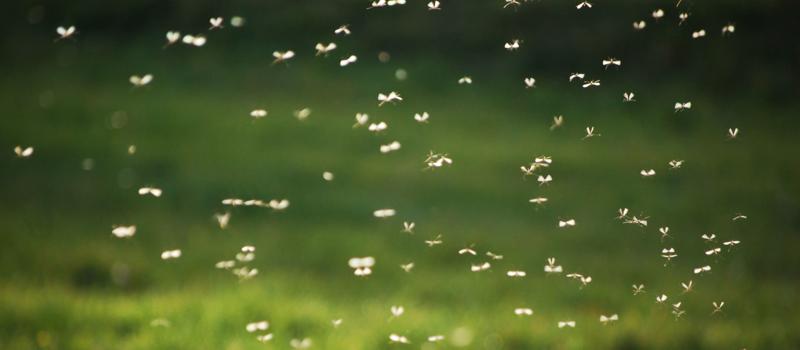To Put it Mildly…Prepping for More Mosquitoes
Posted by Mosquito Squad
February 3, 2022

Every couple of years, we experience a milder than average winter, which is great for our heating bill but not so great for our backyards. Typically, temperate weather during the winter means more mosquitoes in the summer.
Why? Mosquitoes breed in standing water. When water freezes during the winter, many mosquito eggs will die. When it doesn’t freeze, these eggs survive, mature and therefore thrive in droves during the summer.
This winter was among the mildest in recent history so it can be expected that we will see more mosquitoes than in previous years. More than just an annoyance, outbreaks can pose a threat, especially in specific areas like Massachusetts, which was hit by a wave of Eastern Equine Encephalitis (EEE) last summer.
EEE is a mosquito-borne virus that causes potentially fatal brain infections (encephalitis) in humans and other animals (horses, goats, etc.). Outbreaks of EEE can last for years, so a particularly warm winter carries the potential for more infections.
“The mild winter, lack of snow cover and greater than normal rainfall is producing a banner crop of ticks and mosquitoes in New England with large numbers out and active already,” said Curt Felix, owner of The Mosquito Squad of Cape Cod. “If the rainfall continues, expectations are for larger than normal mosquito populations this spring as well. Since EEE is cyclical, we will also be on the lookout for the virus returning this year.”
No need to panic yet! Just because you had a warmer winter, doesn’t mean you need to be plagued by a pests and pestilence.
We’d like to remind you of our 7Ts:
- Tip: Get rid of standing water in your outdoor spaces. Standing water may be in your child’s plastic toys, areas underneath downspouts, plant saucers, or dog bowls. Other areas may include traps, gutters, and flat roofs.
- Toss: Remove excess grass, leaves, firewood, and grass-clippings from your yard.
- Turn: Turn over larger yard items that could hold water, like children's portable sandboxes, plastic toys, or birdbaths.
- Remove Tarps: If tarps stretched over firewood piles, boats, or sports equipment aren't taut, they may be holding water that you should remove.
- Take Care: Take care of home maintenance needs that can lead to standing water. This includes cleaning out gutters, making sure downspouts are adequately attached, keeping your grass cut low, and check irrigation systems for leaks.
- Team Up: Despite taking all precautions in your own home, talking to neighbors is a crucial component to mosquito and tick control. Homes with little space between lots can mean that mosquitoes breed at a neighbor’s house and affect your property.
- Treat: Utilize a mosquito elimination barrier treatment around your home and yard.
Remember to protect your home! The Mosquito Squad provides a mosquito control barrier treatment that will protect your yard for 21 days so you can enjoy the outdoors more. If you have questions on how we can help you, please contact your local Mosquito Squad.
